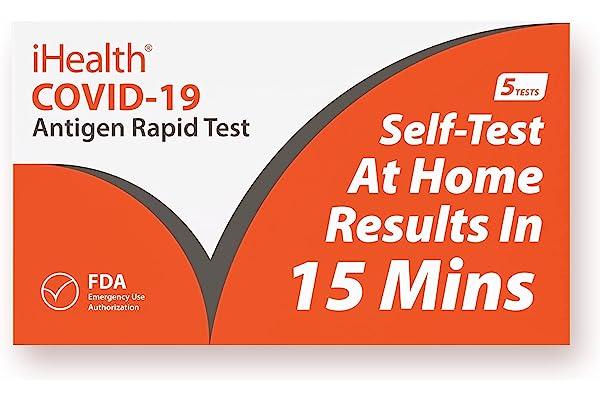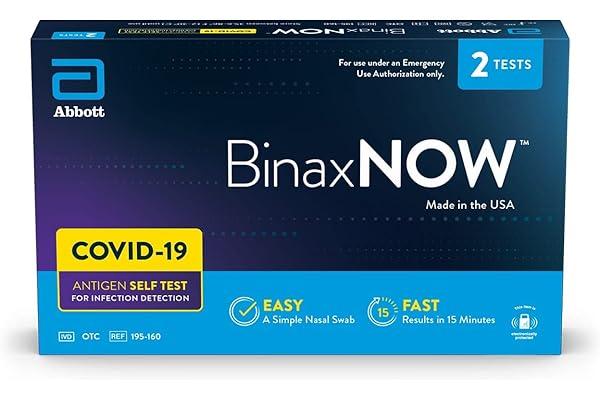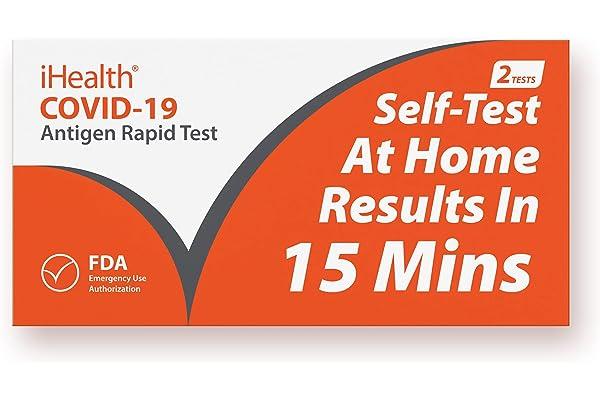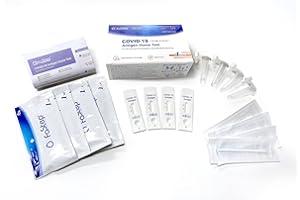Best Selling Clinical Diagnostic Test Kits
Clinical diagnostic test kits are used to detect the presence of a disease or condition in a patient. They are typically used in a medical setting, but some can also be used at home. There are many different types of clinical diagnostic test kits available, each designed to detect a specific disease or condition.
Links to Best Selling Clinical Diagnostic Test Kits
- iHealth COVID-19 Antigen Rapid Test, 1 Pack, 5 Tests Total, FDA EUA Authorized OTC at-Home Self Test, Results in 15 Minutes with Non-invasive Nasal Swab, Easy to Use & No Discomfort (paid link)
- BinaxNOW COVID-19 Antigen Self Test, 1 Pack, 2 Tests Total, COVID Test With 15-Minute Results Without Sending to a Lab, Easy to Use at Home (paid link)
- iHealth COVID-19 Antigen Rapid Test, 1 Pack, 2 Tests Total, FDA EUA Authorized OTC at-Home Self Test, Results in 15 Minutes with Non-invasive Nasal Swab, Easy to Use & No Discomfort (paid link)
- FaStep Rapid 15 Minutes COVID-19 Antigen Home Test (1 Pack, 4 Tests Total) (paid link)
Types of Clinical Diagnostic Test Kits
There are many different types of clinical diagnostic test kits available, each designed to detect a specific disease or condition. Some of the most common types of clinical diagnostic test kits include:
- Blood tests
- Urine tests
- Stool tests
- Skin tests
- Molecular tests
Each type of clinical diagnostic test kit has its own advantages and disadvantages. Blood tests are generally very accurate, but they can be invasive and may require a trained medical professional to administer. Urine tests are less invasive than blood tests, but they can be less accurate. Stool tests are the least invasive type of clinical diagnostic test kit, but they can also be the least accurate. Skin tests are used to detect allergies and other conditions. Molecular tests are the most accurate type of clinical diagnostic test kit, but they can also be the most expensive.
How to Use Clinical Diagnostic Test Kits
The instructions for using a clinical diagnostic test kit will vary depending on the type of test kit. However, some general tips for using clinical diagnostic test kits include:
- Read the instructions carefully before using the test kit.
- Follow the instructions exactly.
- Collect the sample correctly.
- Interpret the results correctly.
If you have any questions about how to use a clinical diagnostic test kit, you should consult with a healthcare professional.
Advantages and Disadvantages of Clinical Diagnostic Test Kits
Clinical diagnostic test kits offer a number of advantages over traditional laboratory testing. Some of the advantages of clinical diagnostic test kits include:
- Convenience
- Speed
- Accuracy
- Cost-effectiveness
However, clinical diagnostic test kits also have some disadvantages. Some of the disadvantages of clinical diagnostic test kits include:
- Invasiveness
- Complexity
- Interpretation
- Cost
It is important to weigh the advantages and disadvantages of clinical diagnostic test kits before deciding whether to use one.
Conclusion
Clinical diagnostic test kits are a valuable tool for healthcare professionals. They can help to diagnose diseases and conditions early, which can lead to better outcomes for patients. However, it is important to be aware of the advantages and disadvantages of clinical diagnostic test kits before using one.



